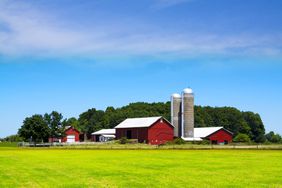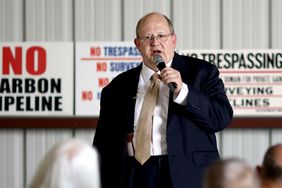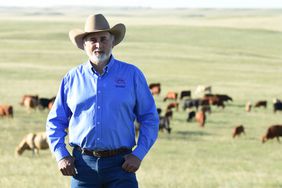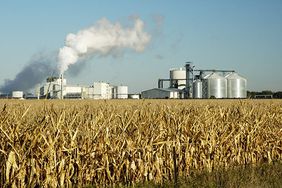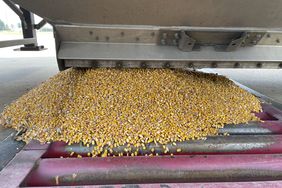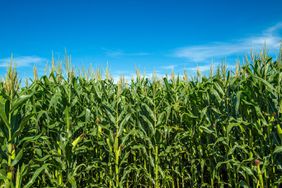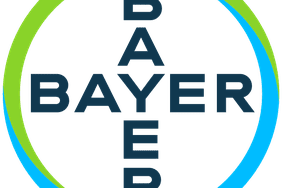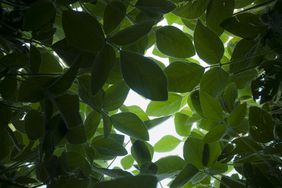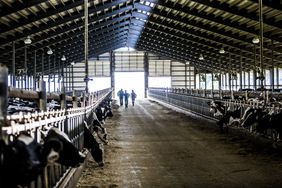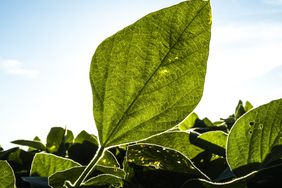:max_bytes(150000):strip_icc()/Corp-Logo_BG_Bayer-Cross_Basic_150dpi_on-screen_RGB-bcb47e2d878e4041adef61e6ef0316ed.png)
Bayer has announced several research and development (R&D) updates that will impact North American farmers. They include the following.
* Bayer officials say the firm has defended its position as the No. 1 soybean weed control system provider with its Roundup Ready Xtend Crop System. Its XtendFlex soybean footprint reached approximately 15 million acres in 2021. XtendFlex offers glufosinate (Group 10) tolerance in addition to tolerance to glyphosate (Group 9) and dicamba (Group 4) herbicides.
Bayer officials say farmers planted Xtend (tolerance to glyphosate and dicamba) and XtendFlex soybeans on more than 55% of the U.S. soybean acres this year. Bayer officials say they expect an upgrade from Xtend to XtendFlex soybeans in the U.S. in the future.
* In corn, Bayer is introducing its corn rootworm 3 (CRW3) technology as part of SmartStax PRO, and the sales rollout for the 2022 launch in the U.S. is underway. This year's field trials brought to light the upgraded product's better stands and stronger roots, say Bayer officials.
"This is a particularly timely introduction and we expect it to be well-received by growers following increased rootworm pressure this summer in the U.S.," said Liam Condon, member of the board of management of Bayer AG and president of the crop science division, in a news release.
The company anticipates transitioning its 15-million-acre trait SmartStax footprint in the U.S. over the next few years to this new CRW3 technology. Innovations like this protect corn yield, which is made possible by top-performing germplasm. This helps sustain the company's leading market positions in the top corn markets around the world, say Bayer officials.
* Bayer is also expanding its Climate FieldView digital agriculture platform – now being used on more than 180 million subscribed acres across 23 countries. The company is also seeing increased sales of its own products among FieldView users, say Bayer officials.
The connectivity from these acres, including logging information from planters, sprayers, and combines, is helping farmers make data-driven decisions and optimize yield while lowering the environmental footprint of their farming operations, say Bayer officials.
FieldView is also expected to enable a simple, robust, scalable process to measure, verify, and report on practices that sequester carbon. In the first year of its Carbon Initiative, Bayer enrolled more than 2,500 FieldView users in carbon farming trials in the U.S. and Brazil alone.
"With carbon markets worth more than $200 billion annually, we are leading the way in helping make carbon farming a reality through our global Carbon Initiative," added Condon. "By incentivizing farmers to adopt climate smart practices, as well as future products that yield more and sequester more carbon, we are creating new value opportunities for the farmer and our company."
